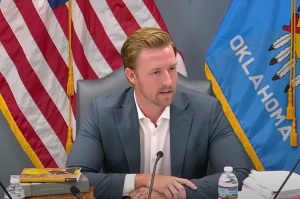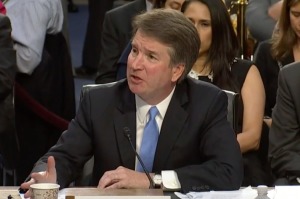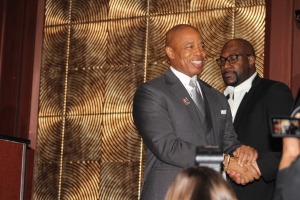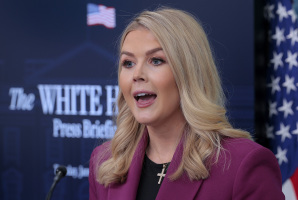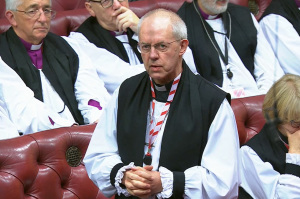Lebanese Christian party leader warns of 'major confrontation' after Hezbollah allies lose majority
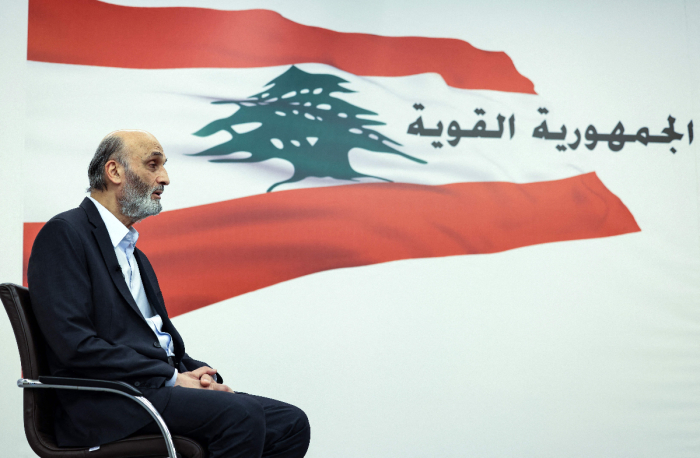
A Lebanese Christian party leader is threatening to reject any coalition government that would place allies of the Islamic terror group Hezbollah in the country's seat of power.
Samir Geagea, the head of the Christian party Lebanese Forces, told Reuters this week that the group will continue to boycott any power-sharing deal if a new consensus cabinet is formed that includes anyone aligned with the armed Shi'ite movement being appointed as prime minister.
The Lebanese Forces holds the largest bloc in Lebanon's fragmented Parliament with 21 of 128 seats. Hezbollah lost its parliamentary majority in last month's election, but the Hezbollah-led alliance secured 61 seats.
The body's first session was held Tuesday.
But Geagea says after the elections failed to stop Nabih Berri, described as a Hezbollah ally, from securing his seventh term as speaker, all options are on the table.
"If it's a government that includes everyone as usual, of course we won't approve and we won't take part," Geagea was quoted as saying.
"[Hezbollah] shouldn't celebrate too much," Geagea added.
The party chief also warned any further parliamentary divisions could result in a "major confrontation" between the Iran-backed Hezbollah and its allies and the Saudi-aligned Lebanese Forces, according to Reuters.
Lebanon's Parliament is set to elect a successor to President Michel Aoun in the coming months. The new president would then tap a new prime minister, and it's unclear whether Geagea and the Lebanese Forces will support the current premier, Najib Mikati. Aoun's presidential term ends on Oct. 31.
In addition to political turmoil, Lebanon also faces an economic crisis. The World Bank has warned the lira, the Lebanese currency, has dropped more than 90% in value since October 2019.
Any delay in forming a new government would likely worsen the country's economic stability.
Robert Nicholson, president of the Philos Project, a nonprofit advocacy group for Christianity in the Near East, told The Christian Post any Hezbollah-led government would be "the nail in the coffin of free Christianity in Lebanon."
As Lebanon's economy continues to deteriorate, Nicholson says, "Hezbollah … has no incentive to preserve Lebanon's old political system or the pluralistic values that made the country so special."
"In other words, it's an old-fashioned bust out: The biggest winner will be Iran, and the biggest loser will be the Christians."
With poverty and famine already running rampant, and stores, schools and hospitals closing, churches are "forced to shoulder the burdens of ever more desperate flocks," said Nicholson.
He pointed to the American University of Beirut — which he called "the shining legacy of Protestant missions in the Near East" — announcing plans to relocate to nearby Cyprus.
Nicholson warns the grip of the Iranian regime and the country's economic downward spiral is fueling desperation among Lebanese Christians.
"As the good people leave, the bad people gain more power and consolidate their grip on the state even more. It's a vicious cycle that can only be broken with outside help," he said. "That's why American leadership is so important."
The explosion in Lebanon's capital city in August 2020 led to over 200 deaths, thousands of injuries and the destruction of over 300,000 homes. The explosion worsened Lebanon's financial and humanitarian crisis as the Middle Eastern country with nearly a 40% Christian population was already in a state of decline.
With a population of around 6.8 million, Lebanon shares borders with Israel and Syria.
Bishop Peter Karam, the patriarchal vicar and titular bishop of Acre of Phoenicia of the Maronites, said last year that part of Lebanon's financial crisis is due to the amount of corruption in the government. He compared the financial system's mismanagement to a "Ponzi scheme."
"We must admit the fact that there is a lot of corruption in Lebanon. A lot of corruption in Lebanon financially, politically, socially. … The collapse of the financial institutions in Lebanon is a very complex issue," Karam said.
"The financial sector in Lebanon was a model in the region for a lot of years. The country was known as the Switzerland of the Middle East. But now it's just nonexistent because of mismanagement, corruption and political interference in the workings of the central bank and the financial sector."
















